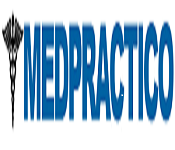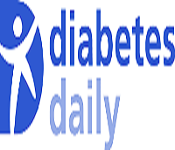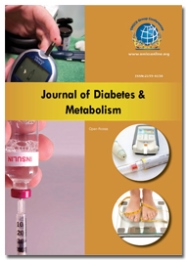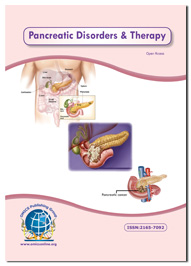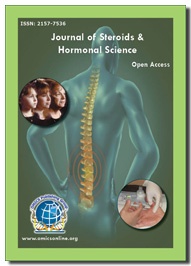Theme:
Venue: Holiday Inn Amsterdam – Arena Towers
Global Diabetes 2019
- Welcome Message
- Who should attend??
- Benefits of Attending
- Market Analysis
- Scientific Sessions
- Visa Assistance
Conference series is hosting the 18th Global Conference on Diabetes & Nursing Care at Amsterdam, Netherlands during June 27-28, 2019. This conference is based on the theme of Approach towards a Diabetes free World.
Diabetes Congress 2019 welcomes all the Diabetologists, Endocrinologists, Nurses and other medical & clinical experts working the arena of Diabetes, Nursing and related field to this upcoming Global Diabetes at Amsterdam, Netherlands.
Hear Explore and learn the latest research. Present before distinguished global audience. Collaborate, build partnerships and experience Europe (Amsterdam, Netherlands). Join the global academic community.
Welcome to the Global Diabetes 2019!
With the amalgamation of peerless speakers of Global Diabetes 2019 Conference Series LLC Ltd is privileged to announce its “18th Global Conference on Diabetes & Nursing Care which will be held during June 27-28, 2019 Amsterdam, Netherlands. We cordially welcome all the eminent researchers, students and delegates to take part in this upcoming Diabetes congress to witness invaluable scientific discussions and contribute to the future innovations in the field of Diabetes and Nursing.
Global Diabetes 2019 conference will focus on the latest and exciting innovations in all areas of Diabetes research which offers a unique opportunity for investigators across the globe to meet, network, and perceive new scientific innovations. This year’s annual congress highlights the theme, “ Approach towards a Diabetes free World” which reflects the innovative progress in Diabetes disease research and Nursing care. The two days conference includes workshops, symposiums, special keynote sessions conducted by eminent and renowned speakers who excel in the related field which include: Diabetes, Nursing care, Anatomy of Endocrinology and Diabetes, Clinical Research and Case Study, Diabetes prevention and management, Gestational and Stem Cell diabetes, Diabetes complication & disorder in:- children, teens, adolescence, Emerging focus in Diabetes research, Nursing care and management, Diagnostic approaches of Diabetes, Diabetes & Obesity, Diabetes & Metabolism & action, Diabetes associated diseases, Diabetes medication and therapy, Diabetes market and Business analysis.
This Global Diabetes 2019 invites all the Academic Scientists, Leading Diabetologists, Surgeons, Primary Health care specialists, Paediatricians, Pharmaceutical Industrial Delegates, talented young scientists, and student communities across the globe where all the aspects of Endocrinology, Diabetes Mechanism, Disorders, & Treatment will be discussed under single roof.
Benefits of Attending:
- Exchange ideas and network with leading diabetologists, endocrinologists, diabetes researchers, clinicians researchers, nurses, diabetes and endocrinology professionals and researchers from more than 40 countries
- Discuss quality initiatives that can be applied in the practice
- Discuss ways to collaborate in putting quality initiatives in place throughout the Diabetes study and diabetes disorders and treatment
- Participants can gain direct access to a core audience of professionals and decision makers and can increase visibility through branding and networking at the conference
- Learn and discuss key news and challenges with senior level speakers.
- With presentations, panel discussions, roundtable discussions, and workshops, we cover every topic from top to bottom, from global macro issues to strategies to tactical issues
About Hosting Organization: Conference Series
Conference Series is the world’s leading specialist in organizing Academic, Scientific and Business conferences, meetings, symposiums and exhibitions in different verticals and horizontals like Medical, Pharma, Engineering, Science, Technology and Business to promote scientific research. Every year we host more than 3000+ global events inclusive of 1000+ Conferences 1000+ Symposiums 1000+ Workshops in USA, Europe, Middle East and Asia with the generous support and cooperation from our 30000+ Editorial Board Members, 1000+ Scientific Societies. All the conference proceedings are published in the special issues of our 700+ Open Access International Journals with the DOI provided by CROSSREF.
Target Audience:
Ø Academic researcher
Ø Dibetologists
Ø Endocrinologists
Ø Nurses
Ø Data management companies
Ø Medical colleges
Ø Training institute
Ø Diabetes Societies & Association
Ø Medical & Pharmacy Companies
Ø Software development companies
Ø Business entrepreneurs
Ø Manufacture medical devices & companies
- Diabetologists
- Endocrinologists
- Doctors
- Researchers
- Physicians
- Business Professionals
- Academic Professionals
- Students
- Scientists
- Medical and Pharma Companies
- Medical Colleges and Hospitals
- Diabetes Societies and Associations
- Exchange thoughts and system with driving diabetologists, endocrinologists, diabetes analysts, clinicians' specialists, diabetes and endocrinology experts and scientists from in excess of 40 nations
- Discuss quality initiatives that can be applied in the practice
- Discuss approaches to work together in setting up quality activities all through the diabetes study and endocrinology and diabetes issue and treatment
- Participants can increase guide access to a center gathering of people of experts and leaders and can expand perceivability through marking and systems administration at the meeting
- Learn and talk about key news and difficulties with senior dimension speakers.
- With introductions, board dialogs, roundtable discourses, and workshops, we cover each subject start to finish, from worldwide full scale issues to methodologies to strategic issues
European Diabetes Market is growing rapidly. Data from the International Diabetes Federation to mark World Diabetes Day in November last year showed that there were 803,900 diabetics in the UAE, about 19 per cent of the population. Middle East Diabetes Market is expected to grow at a CAGR of 5.1% and expected to reach US$ 16.4 billion by 2023 from US$ 11.6 billion in 2016.
In countries like Saudi Arabia, Kuwait, Bahrain, Qatar and UAE, about 24%, 23%, 22%, 20% and 19% of the population is affected by this disease respectively. By 2020, an estimated 32% of the adult population (age 20-79), including both UAE nationals and expatriates, may have diabetes or prediabetes at a possible cost of $8.52 billion (USD) (AED 31.27 billion) over the next decade if current trends continue. Medical costs attributable to diabetes and prediabetes in the UAE are forecast to increase to perhaps $1.04 billion (AED 3.82 billion) by 2020, representing a 58% increase from an estimated $657 million (AED 2.41 billion) in 2010. Moreover, the UAE is also growing and is the second largest market for Middle East countries on Diabetes.
There are plenty of large and small market players which operate in the Middle East and Africa diabetes market are: Abbott (USA), Bayer AG (Germany), Becton Dickinson and Company (USA), Johnson & Johnson Services, Inc. (USA), Merck & Co., Inc. (USA), Novartis AG (Switzerland), Novo Nordisk A/S (Denmark), Roche Diabetes Care, Inc. (USA), Sanofi-Aventis U.S. LLC (US), Ypsomed (Switzerland).
- Type I and Type II Diabetes
- Diagnosis and Treatment
- Endocrine and Metabolic Disorders
- Gestational Diabetes
- Ophthalmologic problem in Diabetes
- Cardiovascular risk in Diabetes
- Stem Cell treatment for Diabetes
- Advanced Technologies to treat Diabetes
- Biomarker for Diabetes
- Diabetic Foot & other related disorders
- Diabetic Case Studies
- Herbal Therapy for Diabetes
- Nurses’ role in Diabetes care
- Advanced Nursing Practices
- Healthcare and Nursing management
- Nursing care for diabetes patient
- Innovations in Diabetes Research
- Market Analysis of Diabetic Products
Type 1 Diabetes mellitus (otherwise called type 1 diabetes) is a type of diabetes mellitus that outcomes from the immune system annihilation of the insulin-delivering beta cells in the pancreas. The ensuing absence of insulin prompts expanded glucose in the blood and pee. The established manifestations are regular pee, expanded thirst, expanded yearning, and weight reduction. The reason for diabetes mellitus sort 1 is obscure. Type 1 diabetes can be recognized from type 2 from autoantibody testing. The C-peptide test, which measures endogenous insulin generation, can likewise be utilized.
Type 2 diabetes is a long haul metabolic turmoil that is portrayed by high glucose, insulin resistance, and relative absence of insulin. Basic side effects incorporate expanded thirst, incessant pee, and unexplained weight reduction. Indications may likewise incorporate expanded craving, feeling tired, and bruises that don't recuperate. Regularly indications go ahead gradually. Long haul complexities from high glucose incorporate coronary illness, strokes, diabetic retinopathy which can bring about visual impairment, kidney disappointment, and poor blood stream in the appendages which may prompt removals.
Diabetes may be analysed based on plasma and glucose criteria or A1C criteria. Early in disease diabetes shows no symptoms so blood tests are used to diagnose diabetes and pre-diabetes. Clinical diagnostic in diabetes involve taking blood at a healthcare facility centre or commercial diagnostic centre and sending the sample to a lab for examination. To ensure that test results are accurate lab study of blood of required. Glucose calculating devices used in a health care provider’s office, such as finger-stick devices, are not precise enough for analysis but may be used as a rapid indicator of high blood sugar. Such area of research are highly discussed in ADA annual meeting
Endocrine and Metabolic Disorders
Clinical Endocrinology and metabolism is a field of medicine; more precisely a sub-specialty of internal medicine, which mainly deals with the investigation and management of sicknesses related to hormones. The human endocrine system involves number of glands. These glands harvest and release hormones which monitor many important function of our body. When the hormone exits the gland they reach the bloodstream and are moved to organs and tissues in every part of the body. Endocrinology also concentrates on the endocrine glands and tissues that secrete hormones. The human endocrine system comprises of several glands. These glands harvest and secrete hormones which regulate the body's metabolism, growth, sexual development and function. Hormonal imbalance in our body henceforth leads to diabetes.
Gestational diabetes is developed during pregnancy (gestation). Like other types of diabetes, gestational diabetes affects the usage of glucose by cells. High blood sugar can be caused by gestational diabetes and this can affect the pregnancy and the health of baby. Gestational diabetes can be controlled by women by eating healthy foods, exercising and taking medication if necessary. Controlling blood sugar can prevent a difficult birth and can keep both the mother and baby healthy. In gestational diabetes, blood sugar returns to normal soon after delivery. But a person having gestational diabetes can have a risk for type 2 diabetes.
- Excessive birth weight
- Early (preterm) birth and respiratory distress syndrome
- Low blood sugar (hypoglycemia)
- Type 2 diabetes
- High blood pressure and preeclampsia
Ophthalmologic problem in Diabetes
Diabetes can also cause a group of eye conditions which are collectively called Diabetic eye disease. The most common form of the disease is diabetic retinopathy which is associated with damage to the tiny blood vessels in the retina. This condition can progress through four stages and eventually result in retinal detachment or permanent vision loss. Other forms of the diabetic eye disease include Glaucoma, Cataracts, Blindness, etc. For early detection and treatment of such disease, it is necessary for affected individuals to undergo retinopathy screening and taking proper care of oneself.
- Visual Impairment
- Cataracts
- Glaucoma
- Retinal detachment
- Diabetic Retinopathy
- Background retinopathy
- Proliferative retinopathy
- Diabetic maculopathy
Cardiovascular risk in Diabetes
The risk of CVD mortality in type 2 diabetic patients is more than double compared with that in age-matched subjects. Stroke events and all manifestations of CHD, myocardial infarction (MI), sudden death, and angina pectoris is at least twofold more common in patients with type 2 diabetes than in non-diabetic individuals. A high proportion of patients with type 2 diabetes die after an acute MI within 1 year, and a considerable number of patients die outside the hospital. Relative risk for CHD events is higher in female patients with type 2 diabetes than in male patients with type 2 diabetes. The reason for the sex difference is largely unknown but could be at least in part explained by a heavier risk-factor burden and a greater effect of blood pressure and atherogenic dyslipidemia on the risk of CVD in diabetic women than in diabetic men.
- High Blood Pressure
- Heart Disease
- High Blood Glucose
- Damage of Blood Vessels
- Atherosclerosis and Hypertension
- Shortness of Breath
- Diabetic Neuropathy
Stem Cell treatment for Diabetes
In every of these cases, using one's own stem cells will facilitate the exocrine gland regenerate and boost its ability to produce insulin. Procedure continues to achieve success, with patients experiencing health advantages even six months after stem cell diabetes treatment. repeated applications of adipose stem cells is that the most effective treatment for diabetes type two, providing an open window to create dietary changes, supplementation and exercise much more effective for long-term management of blood glucose. Adult stem cells, undifferentiated and adaptable, area unit ready to transform into the cells of innumerable organs and structures inside the body. Several therapies use stem cells as they will restore broken structures and rejuvenate failing cells very effectively. Stem cell science has seen considerable advancements within the previous few years with several new developments and discoveries being created.
Swiss Medica Clinic has developed the Adult autologous stem cell medical care program to treat a range of conditions. Throughout stem cell treatment a patient receives 200 – 300 million stem cells. The number of restored cells not only covers daily losses, however exceeds them 1000 times. Thus, the reserve of the stem cells, much lost for the newest 15 – 20 years, is restored. When such active cell filling, organ gets rejuvenated and revived, because the new and active cells displace the previous and broken ones
- Stem Cell Therapy
- Treatment of Diabetes
- Embryonic Stem Cell Research
- Type 1 Diabetes Beta Cells
- Umbilical Stem Cells
- Stem Cells and Diabetes
Advanced Technologies to treat Diabetes
Diabetes is a serious condition which still doesn't have a cure which makes new research, treatment and management techniques a crucial necessity. Over the past years there have been considerable breakthroughs in understanding and preventing diabetic complications. While some research focuses on generating artificial pancreas or engineering insulin-producing beta cells, some other researches are directed towards finding newer and longer lasting drug molecules, devising more efficient diets and also developing intensive treatment programs. Needless to say, trends and advances on diabetes research is the need of the hour for bringing about excellent management of this serious life-threatening disease.
- Vaccination
- Engineered Beta Cells
- Artificial Pancreas
- Islet Neogenesis
- New Anti-Diabetic Drugs
- Intensive Combination Therapies
- Development of Diabetic Diet
Molecular Biomarkers can be demarcated as “a characteristic that is accurately measured and gauged as an pointer of normal biological procedures, pathogenic procedures, or pharmacologic responses to a pharmaceutical intervention. Biomarkers play a vital part in leading clinical trials and treating patients. Advances in molecular diagnostics help medical professionals make knowledgeable, scientifically valid decisions. More well-organized discovery and usage of biomarkers in the growth of antidiabetes drugs will depend on accelerating our understanding of the pathogenesis of diabetes and specifically its macrovascular complications. Procedural improvements from other fields, especially cancer, are beginning to show the way towards better models of diabetes pathogenesis and molecular biomarker discovery.
Diabetic Foot & other related disorders
Often, raised blood glucose is capable of damaging the sensation in the feet, affecting blood circulation to the area without which there usually tends to be delay in healing of the cuts and sores. When these symptoms are kept untreated, various complications are likely to arise like foot ulcers, foot infections and foot deformation and might also lead to amputation. Therefore it is extremely necessary to take proper care of the foot, undergo regular foot examinations and keep diabetes under control.
- Diabetic Foot ulcers
- Diabetic Foot Amputation
- Diabetic Foot Pain
- Charcot’s foot
- Gangrene
- Miscellaneous Diabetic Foot Damage
- Footcare in Diabetes
Herbal supplements and remedies are used for the treatment of diabetes and hormonal problems such as estrogen and progesterone levels and treatment for menopausal hormone imbalance, etc. These include:
- Capsaicin cream, a topical ointment made with cayenne, has been reported by some patients to help lower pain in the hands and feet from diabetic neuropathy.
- Evening primrose oil is thought to help diabetic nerve pain
- Ginkgo, garlic, holy basil leaves, fenugreek seeds, ginseng, and hawthorn are other herbals that have been promoted by some as remedies for diabetic symptoms.
Alternative treatments include Acupuncture, Natural Dietary Supplements, Plant Foods, Natural Remedies for endocrine disorders, Hormonal imbalance cure by medicinal plants, Effects of Herbals in Male impotence & female infertility, Herbals acts on adrenal glands, Support the Endocrine System with Adaptogen Herbs, Avoid Environmental Toxins
One of the most important features of diabetes management is the self-management of diabetes which can be successfully achieved and complications prevented with the help and support of the nursing team. Diabetes specialist nurses play a crucial role in screening diabetic persons, detecting early onset of diabetes, assessing nutritional needs of the patient, promoting self-management, providing prevention advice, spreading awareness on diabetes and also providing health coaching. In this context, it is extremely necessary for nurses to be well educated, trained and skilled adequately to be able to proficiently deliver care, support self-management and provide advice to diabetic persons.
- Diabetic Nursing Education
- Diabetic Nursing Management
- Diabetic Nursing Care
- Diabetic Nursing Assessment
- Nursing Priorities
- Nursing Interventions
- Discharge and Home Care Guidelines
Nurse practitioners are those who are well trained and educated Registered nurse professionals and have the responsibility and authority to diagnose and treat the patient. Nursing practice is justified by values that guide the way in which nursing care is provided
- Licence Practice Nursing (LPN)
- Evidence Based Practice in Nursing
- Certified Nursing Assistant
- Registered Nursing (RN)
- Travel Nurse
- Nursing Courses
Healthcare and Nursing management
Nursing Management includes case and disorders management with in the health care organization by taking all the employees working there. It also focused on patient admission and discharge criteria, especially for progressive care given to the patient. Nursing managing process guide the legal aspects of nomination, supervision and assignment the acceptance criterions. It encourages the employee to do more with fewer resources.
1. Nursing care for diabetes patient
Diabetes specialist nurses play a crucial role in screening diabetic persons, detecting early onset of diabetes, assessing nutritional needs of the patient, promoting self-management, providing prevention advice, spreading awareness on diabetes and also providing health coaching. In this context, it is extremely necessary for nurses to be well educated, trained and skilled adequately to be able to proficiently deliver care, support self-management and provide advice to diabetic persons.
- Diabetic Nursing Education
- Diabetic Nursing Management
- Diabetic Nursing Care
- Diabetic Nursing Assessment
- Nursing Priorities
- Nursing Interventions
- Discharge and Home Care Guidelines
Innovations in Diabetes Research
- Vaccination
- Engineered Beta Cells
- Artificial Pancreas
- Islet Neogenesis
- New Anti-Diabetic Drugs
- Intensive Combination Therapies
- Development of Diabetic Diet
Market Analysis of Diabetic Products
Diabetes care market encompasses of technologies, devices and therapeutics in relative to diabetes. There has been a substantial increase in the amount of diabetes cases internationally over the last few years. Currently, about millions of people are in misery because of obesity, which is a key reason for increase of diabetes in people. Key Players profiled in the report include Glaxosmithkline, Novo Nordisk, Roche, Medtronic and etc. Novo Nordisk is a leading global provider of diabetes products. The company also has a headship spot in hemostasis management, growth hormone therapy and hormone replacement therapy. The company progresses, manufactures and markets its medical devices and technologies to hospitals, doctors, researchers, scientists and patients in approximately 160 countries.
Related Societies:
USA: American Association of Diabetes Educators | American Diabetes Association | Canadian Diabetes Association | American Association for Clinical Endocrinology | Diabetes Canada
Europe: European Society of Endocrinology | Central European Diabetes Association | FAND - Italian Association of Diabetics | Italian Association for the Defence of the Interests of Diabetics | International Diabetes Federation- Italy
Asia-Pacific: Australian Diabetes Society | Asian Association for the Study of Diabetes | Diabetes Association of Nigeria | Diabetes Association of the Republic of China | Asian Diabetic Association
- Top 10 Best Hospitals for Diabetes Care in the United States:
|
|
Visa Assistance
Global Diabetes 2019 will be happy to help you in all ways to plan your trip to Amsterdam, Netherlands.We will be happy to help you with the official invitation letter for the approval of your VISA.
Mail us at: diabetes@europemeet.com
When applying for a visa to Europe you will have to submit some required documents as part of the Schengen Visa Application.The following list of documents is required for any short-term Schengen visa application:
Visa application form. Fully completed and signed.
Two recently taken photos must be attached. Both photos must be taken within the last three months, according to the visa photo requirements.
- A valid passport. Not older than 10 years and it should valid for at least three more months beyond the date you plan to leave Schengen area. Older passports with visas on them (if you have any).
- Round trip reservation or itinerary. It must include dates and flight numbers specifying entry and exit from the Schengen area. You can use the visa consultation services. These guys can handle most of your visa requirements such as flight itineraries, hotel reservations along with free consultation over email.
- Travel insurance policy. A document that proves you have travel health insurance for the whole Schengen territory, with a minimum coverage of 30,000 euros in case of any medical emergency as illnesses, accidents and even repatriation in case of death.
Proof of accommodation. A document that shows where you will be accommodated throughout your stay in Schengen. This can be one of the following:
- A hotel/hostel booking.
- A rental agreement.
- A letter of invitation from a host at whose house you will be staying.
Conference Highlights
- Type I and Type II Diabetes
- Diagnosis and Treatment
- Endocrine and Metabolic Disorders
- Gestational Diabetes
- Ophthalmologic problem in Diabetes
- Cardiovascular risk in Diabetes
- Stem Cell treatment for Diabetes
- Advanced Technologies to treat Diabetes
- Biomarker for Diabetes
- Diabetic Foot & other related disorders
- Diabetic Case Studies
- Herbal Therapy for Diabetes
- Nurses’ role in Diabetes care
- Advanced Nursing Practices
- Healthcare and Nursing management
- Nursing care for diabetes patient
- Innovations in Diabetes Research
- Market Analysis of Diabetic Products
To share your views and research, please click here to register for the Conference.
To Collaborate Scientific Professionals around the World
| Conference Date | June 27-28, 2019 | ||
| Sponsors & Exhibitors |
|
||
| Speaker Opportunity Closed | Day 1 | ||
| Poster Opportunity Closed | Click Here to View | ||
Useful Links
Special Issues
All accepted abstracts will be published in respective Our International Journals.
- Journal of Diabetes and Metabolism
- Pancreatic Disorders and Therapy
- Journal of Steroids and Hormonal Science
Abstracts will be provided with Digital Object Identifier by











